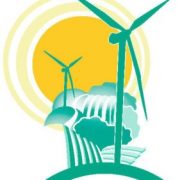So where, as COVID redefines economies and politics, is the renewable energy sector? What happens over the next few years – to technologies, investments, deployments and incentives – will determine multiple trajectories. These include the jobs of millions of people, how quickly carbon accumulates in the atmosphere and oceans, and the possibility of stranded assets hampering any rapid, substantive switch from old to new.
If you’re thinking purely in terms of dollars and cents, the latest issue of Forbes has a fascinating article. A joint study by the International Energy Agency (IEA) and Imperial College London reviewed returns on energy investments starting in 2009. Combining German and French stock market data, the past five years showed returns of 178% for renewables and -20.7% for fossil energy. UK renewable stocks returned over 75%, legacy energy 8.8%. Here at home, where utility-scale renewable buildouts began later than in Europe, renewable returns were north of 200%, while oil, gas and coal stocks didn’t quite double. Renewable investments proved more stable over the same periods measured. But the same article notes that the biggest fossil energy shareholders – pension funds – are reluctant to disinvest from dividend-rich stocks.
Beyond that, an ostensible renewable energy transition is up against multiple countervailing factors – for starters $900 billion or more in potential “stranded assets” of global fossil energy companies. The oil majors have talked a good game for years now, but the numbers don’t bear out their proclaimed commitments to renewables. Exxon is now in court for, among other things, bragging on its green energy tech while spending less than ½ of 1% of revenues on renewable energy. In 2019, BP projected spending between 3% and 8% (at best) of capex on renewables, and in February the company dumped an advertising campaign highlighting renewables. And so on.
American utilities face the same kinds of stranded asset risks, though only 18% of utility employees view sunk costs in infrastructure as a top worry. But power plants can be ferociously expensive to build. Evergy’s Iatan 2 project, which went online nearly 10 years ago, came in at nearly $2 billion, with state-of-the-art environmental retrofits of the Iatan 1 plant adding to costs. It can take large projects like this decades to pay for themselves; securitizing early retirement of fossil fuel plants can blunt risks to utilities, but so far has only been tried in three states.
Even bigger picture – there’s a substantial inertia built into an energy economy created more than 100 years ago – a vast, complex system that works remarkably well to meet the needs of its customers. To date, renewables are still a small slice of total US electricity output. In 2018, natural gas generated about 35% of our electricity, coal about 27%, nuclear a bit over 19% and all renewables, including hydroelectric, not quite 17%, with niche sources making up the rest.
To be clear, renewable energy’s recent eclipse of coal in the US has been remarkable. In fact, the US Energy Information Administration (EIA) announced the very day this was written that in 2019 consumption of energy produced from renewables passed that produced by coal, the first time per EIA that this has happened since before 1885. But a decarbonized energy economy is still decades away. The International Renewable Energy Agency (IRENA) estimates that to even approach climate goals, renewables must increase to around 65% of global Total Primary Energy Supply by 2050 – and we’re nowhere close to that yet. More on all of the above, COVID impacts and the state of play in our next renewable installment.

